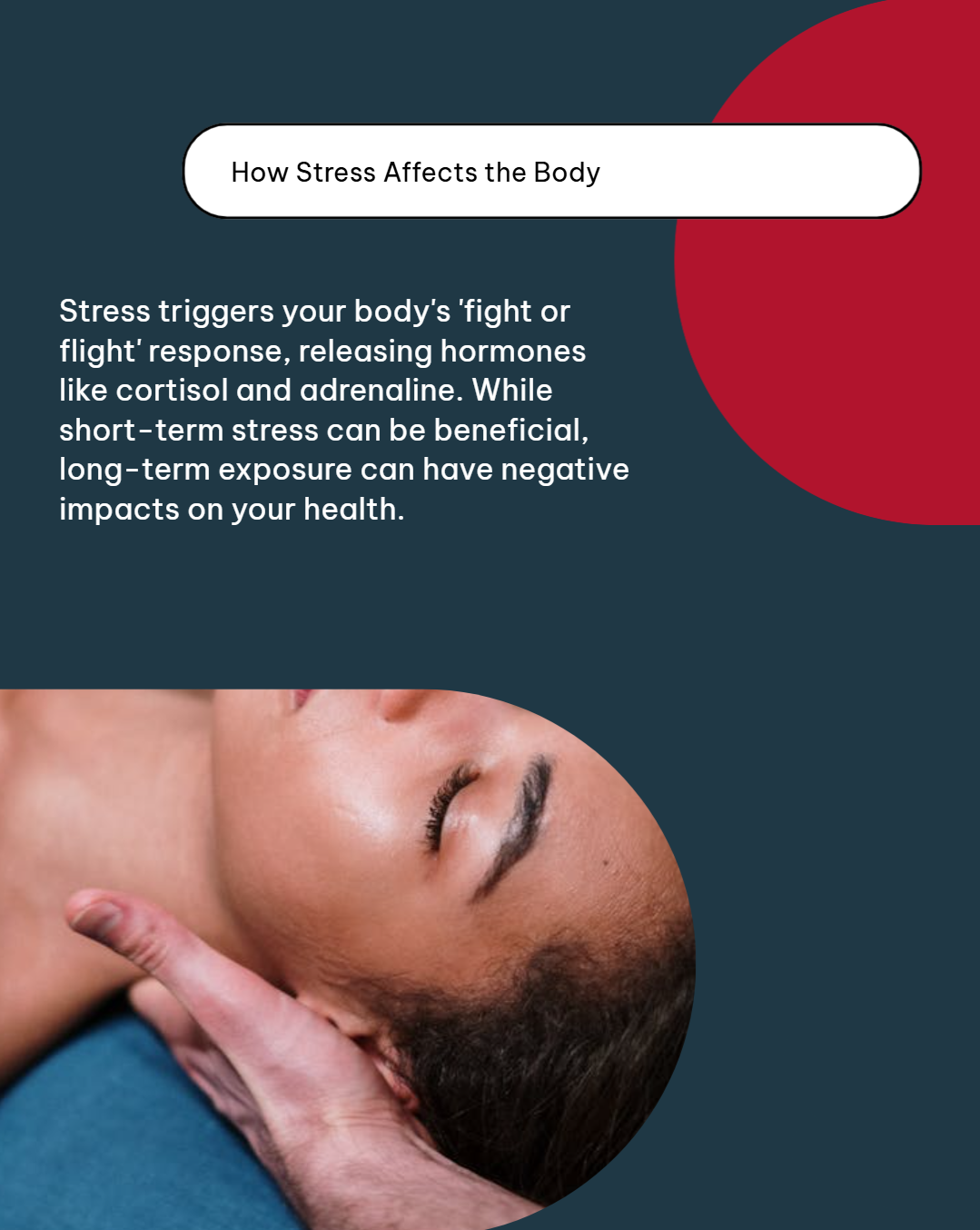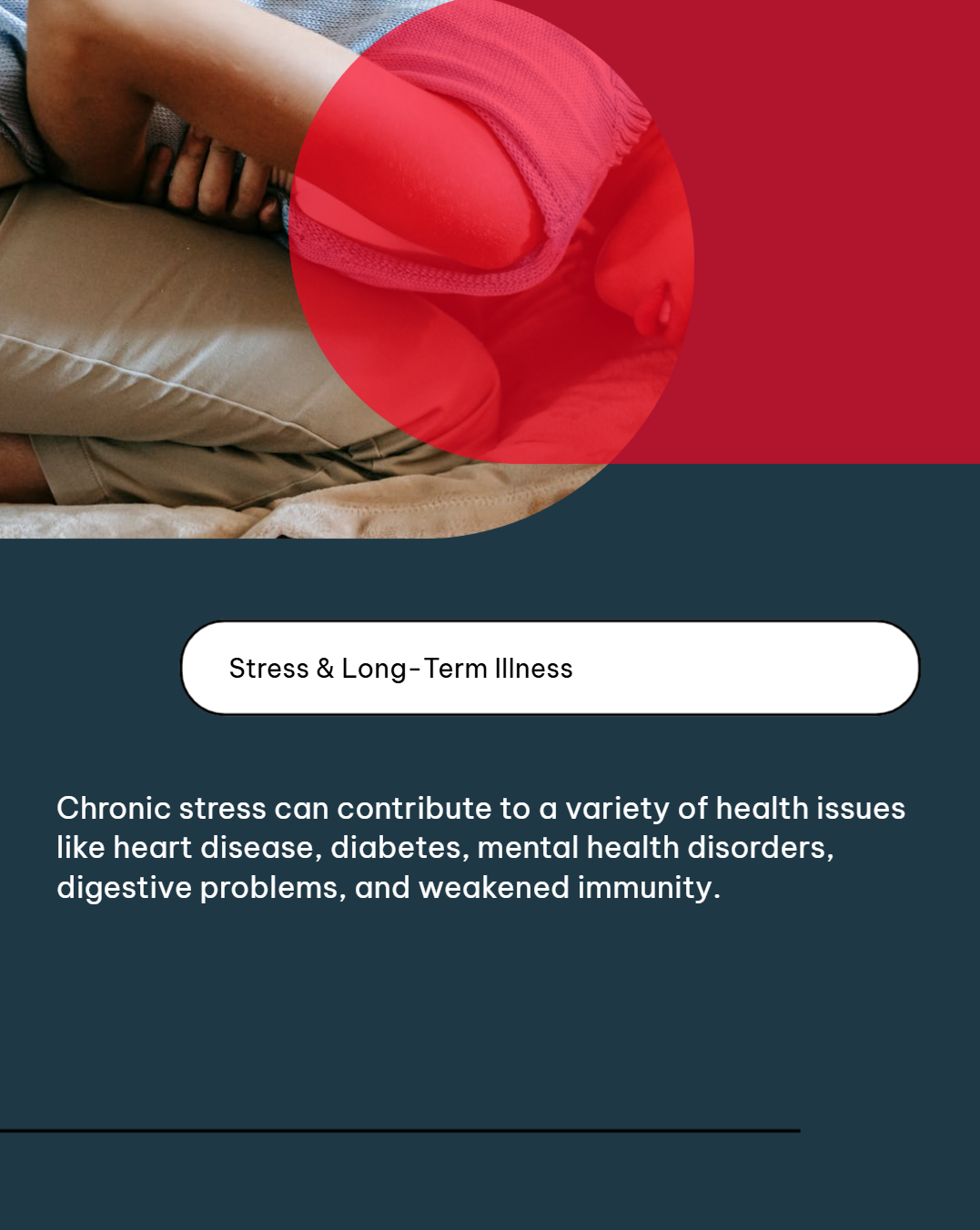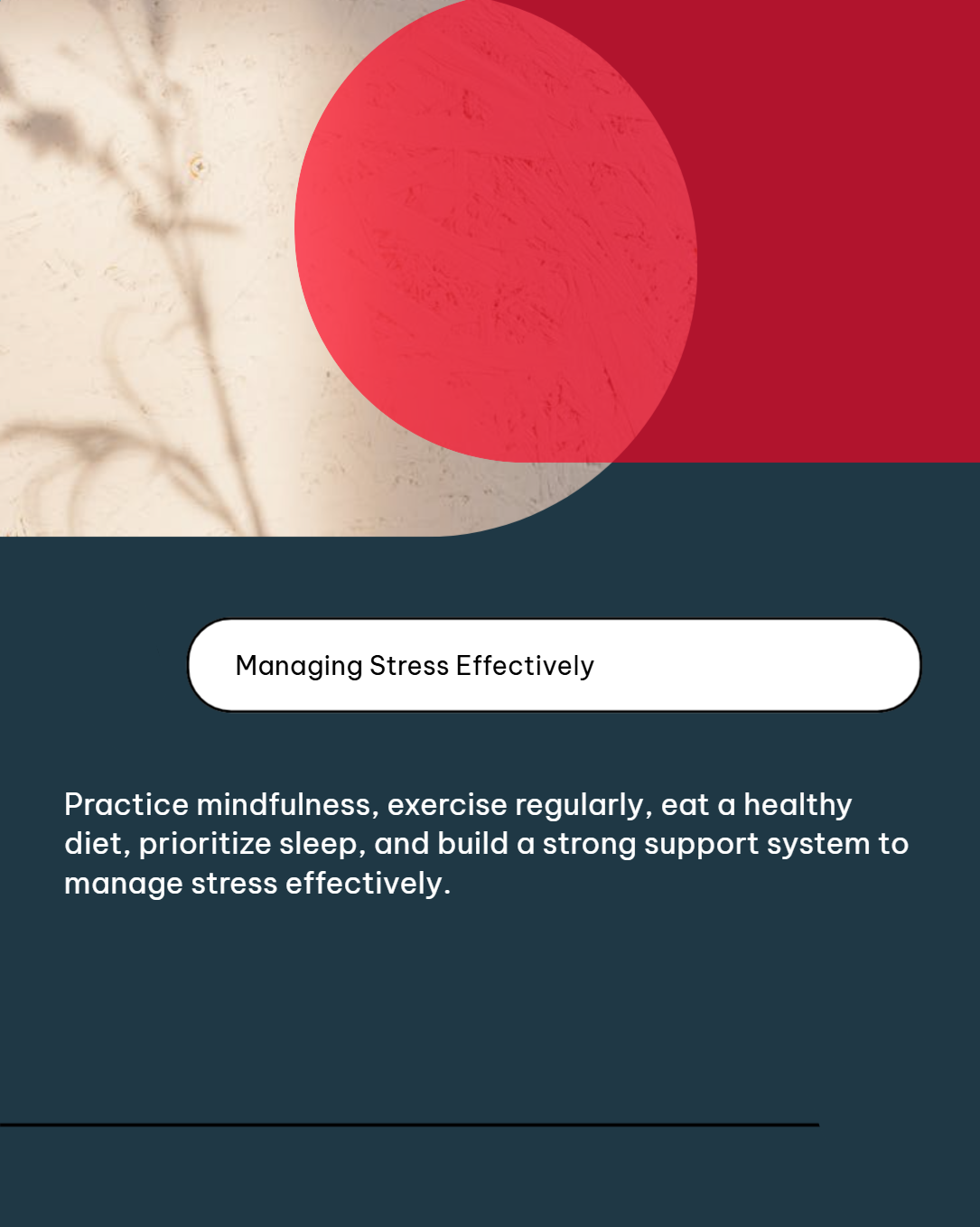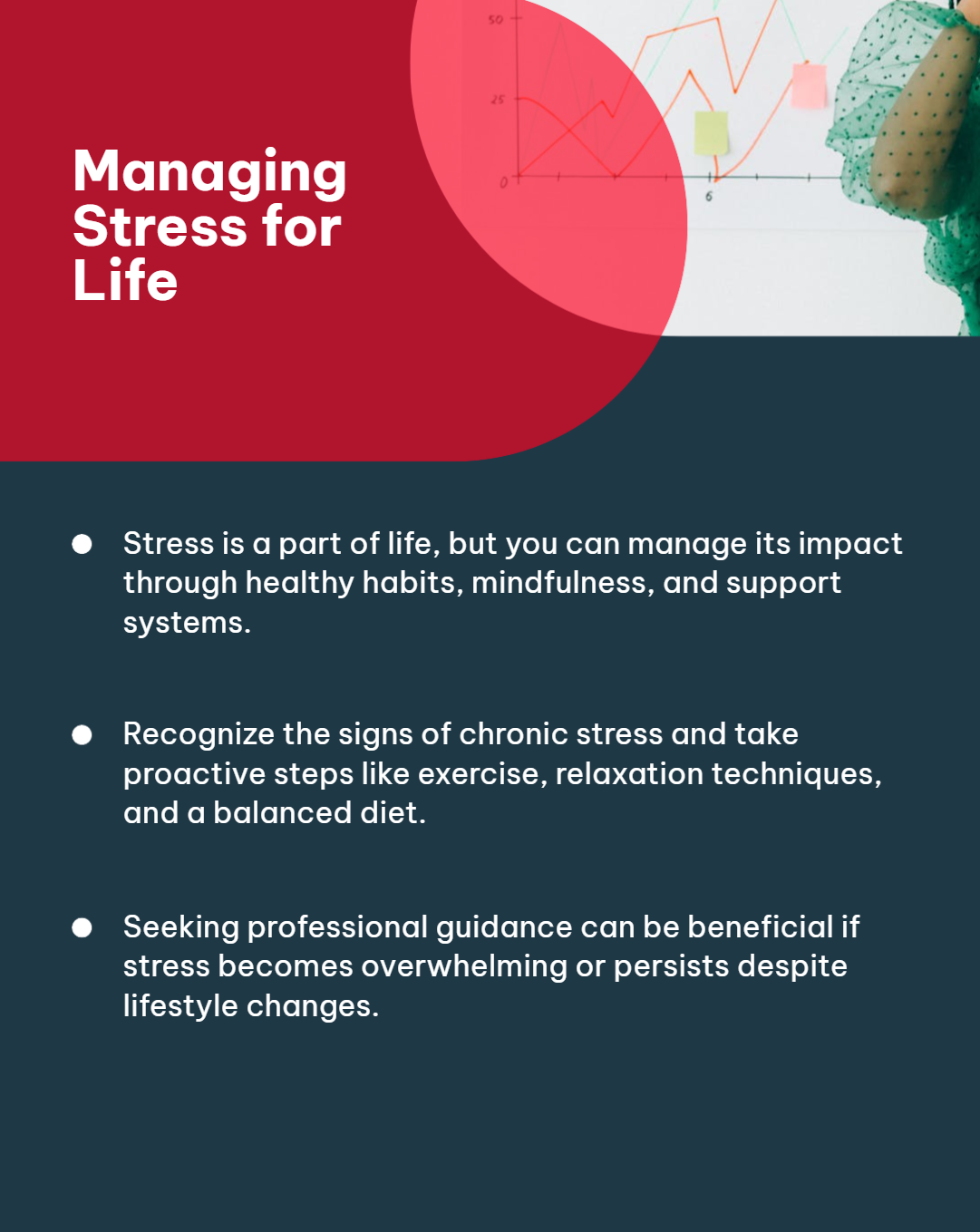Stress is an inevitable part of life, but chronic stress can have profound effects on both physical and mental health. Understanding the connection between prolonged stress and long-term illnesses is crucial in fostering a healthier and more balanced lifestyle. In this article, we will explore the ways stress impacts the body, its relationship with chronic diseases, and actionable steps to mitigate its effects.
Stress is the body's natural response to any demand or challenge. It activates the "fight or flight" response, releasing hormones like cortisol and adrenaline, which prepare the body to handle immediate threats. While this response is essential for survival, prolonged activation can lead to adverse health outcomes.

In small doses, stress can be beneficial. It helps you stay focused, alert, and motivated. However, even short-term stress can cause:
When stress becomes chronic, it can wreak havoc on the body. Prolonged exposure to stress hormones can lead to:

Chronic stress increases the risk of cardiovascular conditions. Elevated cortisol levels raise blood pressure and cholesterol, which are major risk factors for heart attacks and strokes.
Prolonged stress can cause insulin resistance, leading to higher blood sugar levels. This is particularly concerning for individuals predisposed to or already managing diabetes.
Chronic stress is a significant contributor to mental health issues such as anxiety, depression, and even cognitive decline. Persistent stress alters brain function and structure, impacting memory and emotional regulation.
Stress can disrupt gut health by altering the gut-brain axis. Conditions like IBS and inflammatory bowel diseases (IBD) are often exacerbated by stress.
Long-term stress suppresses immune responses, leaving the body vulnerable to infections, autoimmune disorders, and even cancer.
Identifying the signs of chronic stress early is key to preventing long-term damage. Common symptoms include:

Engaging in mindfulness practices like meditation and deep breathing can reduce cortisol levels and enhance emotional well-being. Apps like Headspace or Calm can guide you through these exercises.
Physical activity is a natural stress reliever. Aim for at least 30 minutes of moderate exercise, like walking, jogging, or yoga, five times a week.
A balanced diet rich in whole grains, fruits, vegetables, lean proteins, and healthy fats can support the body's stress response. Avoid excessive caffeine, sugar, and processed foods.
Sleep is essential for stress recovery. Create a bedtime routine, limit screen time before bed, and ensure you get 7-9 hours of quality sleep each night.
Talking to friends, family, or a therapist can alleviate stress. Social connections provide emotional support and perspective during challenging times.
If stress feels overwhelming or persists despite lifestyle changes, seeking professional guidance is essential. Therapists, counselors, or doctors can help identify stressors and create a tailored management plan. Medication or therapy, such as Cognitive Behavioral Therapy (CBT), may be recommended.
| TECHNIQUE | BENEFITS |
|---|---|
| Deep Breathing | Reduces heart rate and promotes relaxation |
| Progressive Muscle Relaxation | Relieves physical tension |
| Journaling | Helps process thoughts and identify stressors |
| Time Management | Reduces the pressure of looming deadlines |
| Aromatherapy | Essential oils like lavender promote calmness |
Creating a balanced lifestyle is a proactive way to minimize stress. Here are some tips:
Chronic stress isn't just an individual problem; it has widespread societal effects. Workplace stress contributes to reduced productivity, burnout, and higher healthcare costs. Addressing stress collectively, through workplace wellness programs and community support, can foster healthier societies.

The link between stress and long-term illness is undeniable. Chronic stress acts as a silent contributor to numerous physical and mental health conditions, but it is manageable with the right strategies. By recognizing the signs of stress, adopting healthier habits, and seeking support when needed, you can significantly improve your quality of life. Remember, stress is a part of life, but it doesn’t have to control it.
While stress is unavoidable, its impact can be minimized through effective management techniques such as mindfulness, exercise, and time management.
Stress can lead to weight gain or loss due to hormonal changes, emotional eating, or appetite suppression. Balancing stress is key to maintaining a healthy weight.
Yes, foods rich in magnesium, omega-3 fatty acids, and antioxidants, such as spinach, salmon, and blueberries, can help combat stress.
Stress itself is not hereditary, but how individuals respond to stress can be influenced by genetic and environmental factors.
Yes, chronic stress can lead to premature aging by shortening telomeres, the protective ends of chromosomes,
 12.12.2024
12.12.2024